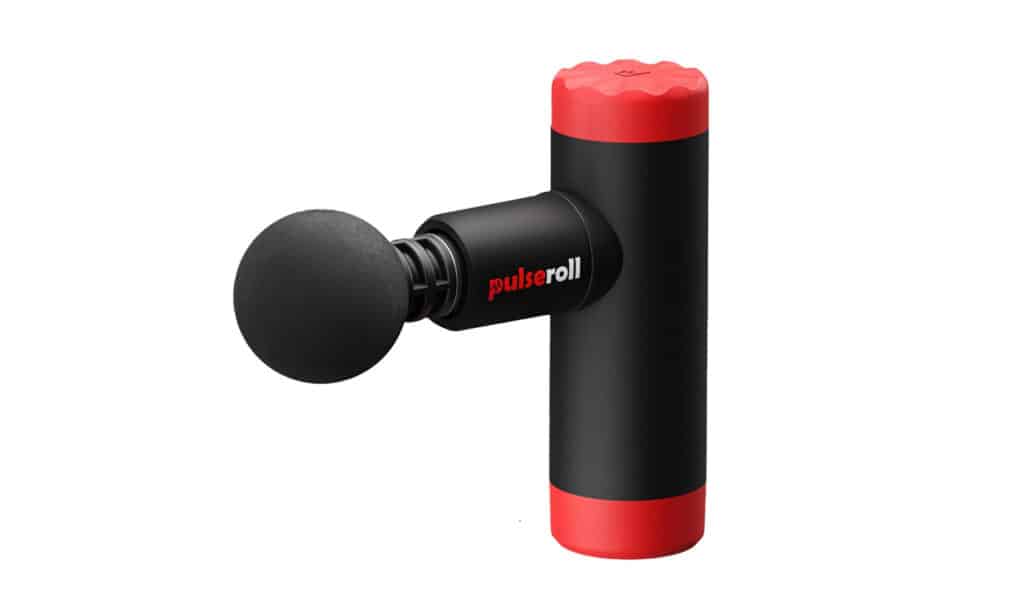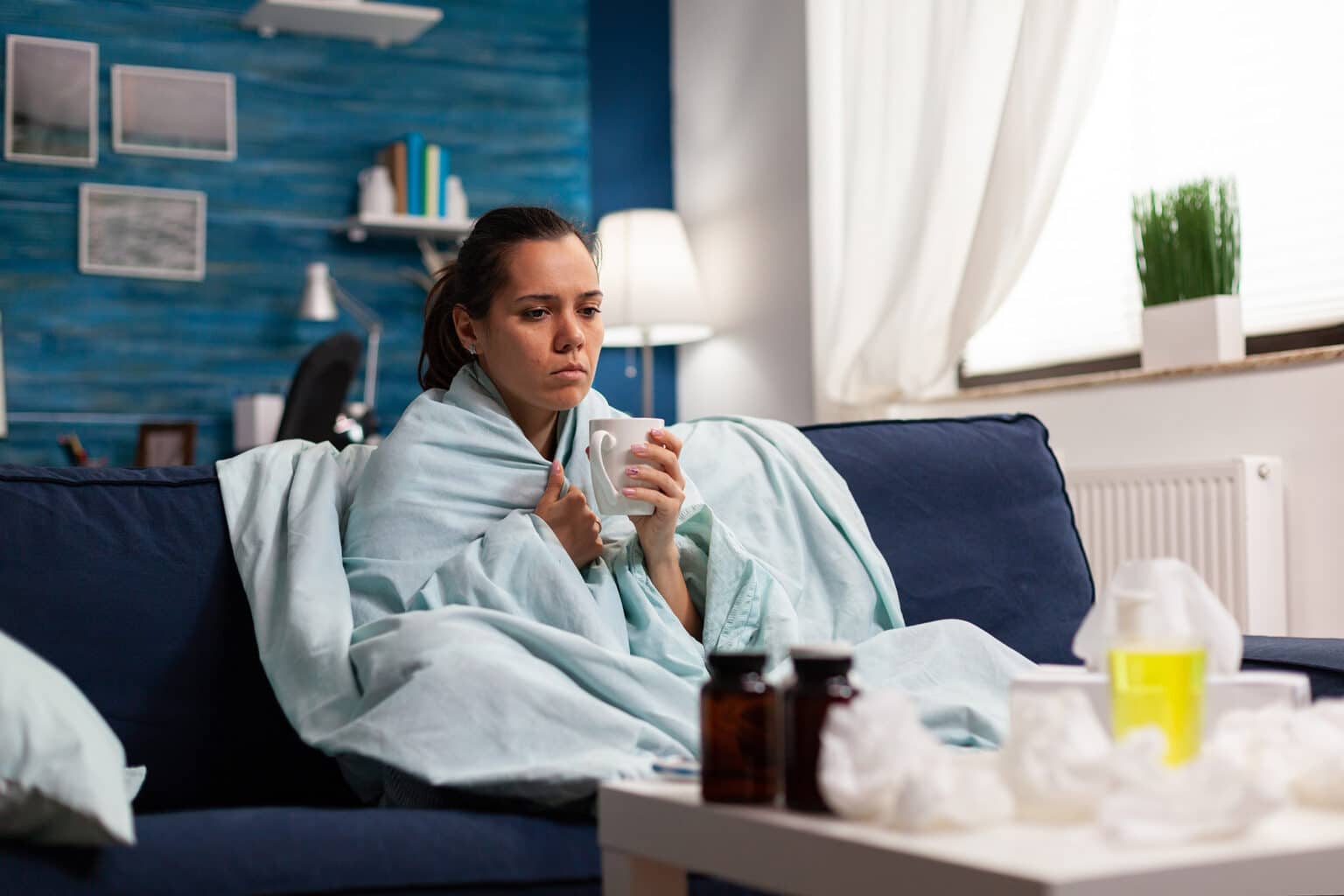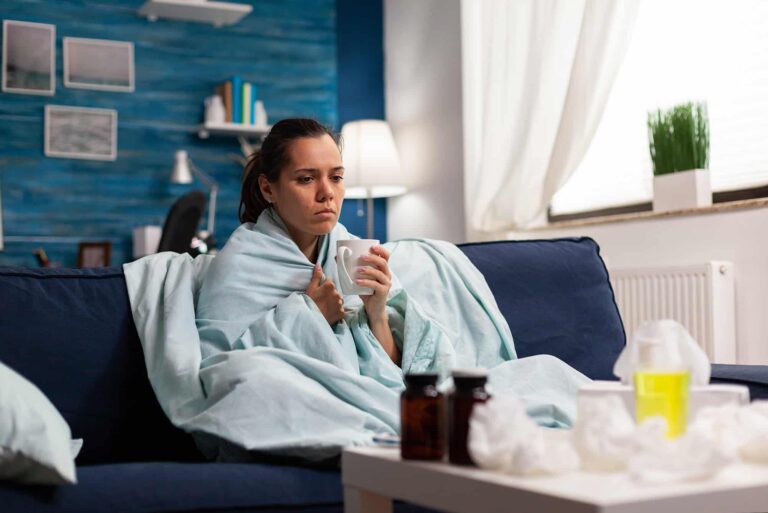


I’ve missed a week of the plan from illness, what should I do? My race is in two months’ time.
Jason
Running coach answer: Recovery from missed a week of training from illness
Mike Gratton:
The first thing to do is not to panic and worry about losing fitness. It is inevitable that most runners will get some kind of illness, particularly in the Winter, since training for a marathon requires more than the usual levels of exercise. The result of this is a lowering of your immune system.
I remember picking up a summer cold just a week before the National Track (AAA) 10,000m. I was in shape for a PB somewhere down in the 28-minute range, judging by my preparation. I was training very hard and increased the pace of my interval work. Then I got ill. I was producing, to put it politely, green snot, but I thought I would try a last track session and see how I was. I abandoned the session halfway as I felt terrible and could get nowhere near the pace I would need to do in the championship race. So I missed the race and I suspect, set my recovery back by a week as well.
If your illness is above the neck, like a head cold or sniffy nose, it is generally considered that you can carry on, but with a reduced level of training. Keep it reduced until your heart rate returns to normal (it will rise a little to combat the cold) and you feel that you are ready to go again. In this case, cut back on both volume and intensity. You will know when you are ready to pick up the training again, but do so gradually and take a couple of weeks to build to your full load again.
If the illness is below the neck, and is accompanied by an aching body and raised temperature, then it is best to stop training and give a week to allow recovery, let your heart rate return to near normal and temperature return to normal. Then start by going for short walks until these don’t feel achy anymore, develop into slow running, then build back to your programme.
You will have lost less fitness than you think you might, and if you have given yourself good recovery time, you will be back to your full programme fairly quickly, having not lost anything.
If your doctor has prescribed antibiotics, usually a course of them to be taken for 7 days. Again stop training, and take the full course of antibiotics before feeding yourself back into walking, slow running, and then your normal programme. You may start to feel better before the 7-day course of antibiotics is complete and be tempted to start to run again. It is likely you feel better because you are on the antibiotics, and actually, you are not fully recovered. Hold fire, don’t rush back and prolong the illness.
Covid wasn’t an issue back in my competitive days. But it is now and seems to affect runners in different ways. Most of my runners have had COVID-19, some showed little in the way of symptoms but could tell something wasn’t right and training had become more difficult. Others have been knocked for six and reduced to exhaustion. In the first case, I have found runners with no or unnoticeable symptoms have been able to return to full running after 5 to 7 days off. However, others have taken a month or so to start feeling normal again. It’s a difficult one for a coach, and the only way is to take things day-by-day, forget the training programme and get a feel for when things start to get better and build back carefully. This may require you to abandon your racing plans.
Long Covid is now in the news. This is a problem area that you will be best speaking to your GP about and take experienced medical advice.
If possible, it is a good thing to avoid getting ill in the first place. A good diet rich in vitamins, iron and zinc will help. I was always advised to take my pulse rate every morning and establish a baseline – for me, around 40 beats/min when I was a fit younger man – then, if in the morning you find your pulse is higher by 5 or so beats/min it is an indication either of overtraining or an illness about start. In this case, you have early warning and can plan to reduce and have an easy week.
Strangely, I often found I had a particularly good training session or race just before going down with something the next day – I had no idea why. Many runners do go down with a cold, and recently some with COVID-19, in the weeks after a marathon. A time when your immune system is shot by the extreme effort of the race. Take the prescribed two weeks off after your marathon that your coach has suggested. Your body needs it.
Have a running training question? Ask Mike for free, and we’ll share the answer online for everyone to benefit! Send your question over to us today.

Share this article
You wake up in the morning, get suited up in your athletic wear, step outside...
Set goals. Stay motivated. Achieve new personal bests. With expert guidance from Mike Gratton, winner...
Hi Mike, the 4-hour mark feels like both a mental and physical barrier. What strategies...
Running is a popular form of exercise and has become increasingly popular in recent years...
Can you start running at 50? Absolutely, and safely too. In this guide, we’ll explain...
We’re here to make sure you’re up-to-date with the latest running tips, events and product discounts – we’ve always got your back! Rest assured, we value your privacy and would never dream of selling your address.
BONUS: Sign up today and receive a FREE code for our Sub-4-Hour Marathon Plan
Your privacy settings
Manage Consent Preferences
Necessary
Analytics
Embedded Videos
Marketing
Facebook Advanced Matching
Facebook CAPI